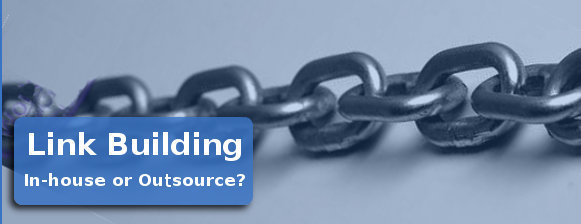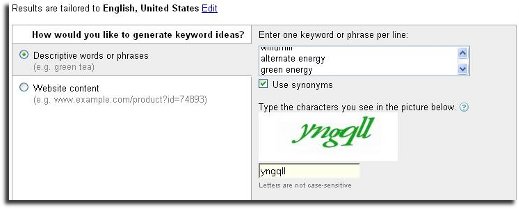Do SEO and Link Building In-house, or Outsource?

Search engine optimization (SEO) and link building are two of the most important things that determine the success of your website. You may wonder if you should work the SEO in house, or if you should outsource it from the start. There are a couple of situations in which you would be better off outsourcing from the get-go:
- You know little or nothing about web page design and outsource that so you don’t have to deal with it
- There is no time to waste on trying out things that might or might not help
But for many website owners, doing SEO and link building in-house is a good first step. Sometimes it can be done perfectly well in-house, but if not, you can always hire an SEO expert if you need one. If you know the general ideas behind SEO and the importance of link building, there is a ton of free guidance online, much of it provided by Google, the search engine that much SEO is directed at.
Link Building Basics
Link building is one of those things that can’t be rushed too much. You don’t need loads and loads of links, but you need a few high quality back links that have no association whatsoever with spammers. Search engines do not take link spamming lightly. They will either demote your site in the rankings or kick it out of their indexes altogether and make you basically start over and prove to them that you’ve reformed your ways before letting you back in.
The sites that provide links to you give search engines context about your site’s content, and can give the search engine algorithm indications of its quality. The links have to be relevant, however. A link from a great website that has absolutely nothing to do with your site’s content won’t do you much, if any, good. Link exchanges and partnerships that are developed strictly for the sake of providing back links – relevant or not – dilute the quality of the links and violate Google’s webmaster guidelines. Your search engine rankings may drop drastically as a result of using these schemes. Links need to be obtained the old fashioned way: by earning them with good, unique content.
But while back links are important to your search engine ranking, they aren’t everything. After all, a brand new site may contain great, original content, but may not have had time to get any back links yet. If this is the case, there are many other things the site owner can do to boost search engine results while those back links develop organically.
Keywords are very important. If you are not sure which keywords you should use, then Google has a keyword tool that can help you. Suppose my website was about “green” energy products. That’s a hot topic these days, so keywords are going to be competitive. How can I choose the best keywords? As you can see in the first screen shot, I used the Google keyword tool to research the three keywords “windmill,” “green energy,” and “alternate energy.”

The second screen shot shows just part of a huge list of suggested keywords for my site. Now, if I choose keywords that have enormous monthly search volumes, I’m going to be competing with a lot of other sites, and with those keywords, I’ll probably inch my way up the search engine rankings at best.
The “sweet spot” I’m looking for is keywords that are relevant to my site that have search volumes in the tens of thousands rather than the hundreds of thousands per month. The keywords “windmill energy” and “windmill electricity” look promising. They come in at around 10,000 searches locally and globally, so I have a better chance of competing, and yet they’re keywords that are relevant and could eventually become competitive, hopefully after my site has worked its way to the top of the search engine rankings.
Another way to use the keyword tool is (looking at the first screen shot again) is with website content I like. I would search for a high ranking website about green energy and feed that site’s url to the keyword tool. The keyword tool will then use the content of that site to generate a list of keywords.
There are a number of other things you can do to get your SEO process going in-house. Submit a sitemap to the search engines so that their bots will be able to crawl your site easily. Make sure your site has an understandable hierarchy and that each page is reachable from one or more static links. Use relevant keywords in your image metatags. And ensure that your title elements and ALT attributes are descriptive and accurate. Fix or remove broken links. Make sure each page has a reasonable number of links. One hundred or more links are too many. Keep it down to 10 or 20.
These practices won’t take an inordinate amount of time, and Google has a lot of webmaster tools that show you exactly what to do to improve your site’s search engine rankings. If you try the basics and your site does not improve in the rankings, and you have fresh, original content, then it may be time to call in an expert on SEO. But in a lot of cases, if you approach it methodically you can do wonders for your site’s search engine rankings (and Google PageRanks) in-house. In fact, if you have summer interns, it would be a great project for one of them.








